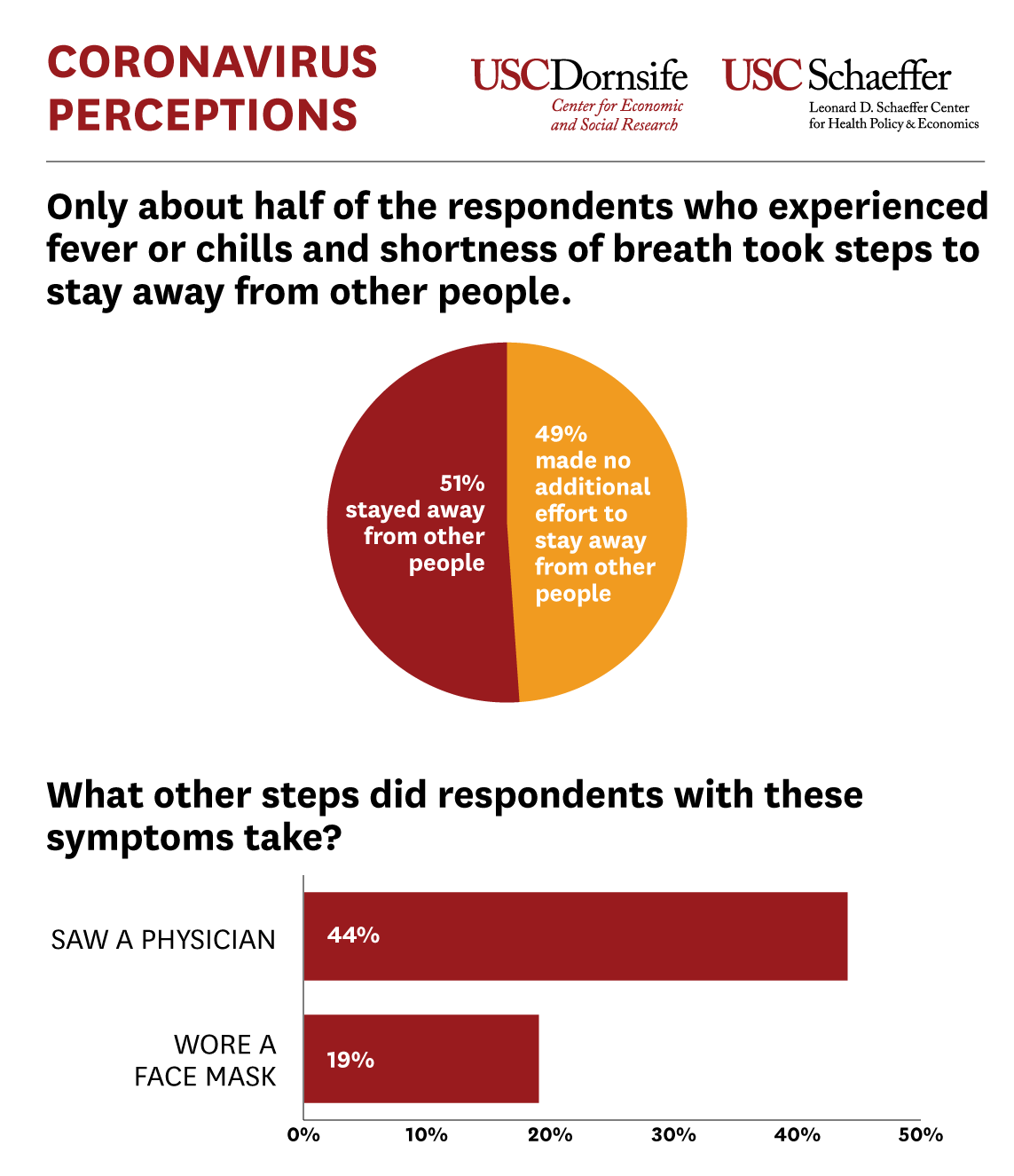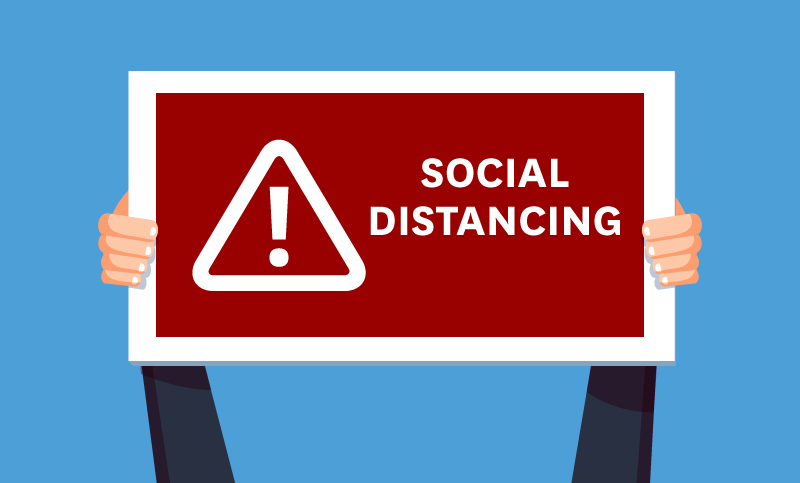Containing the COVID-19 pandemic requires strict compliance with recommendations on social distancing. People are advised to leave the house only for essential activities and to maintain a distance of at least six feet from others. Compliance is particularly important for people with symptoms of respiratory illness.
While shortness of breath and fever are characteristics for the COVID-19 disease, they are by no means specific to it, and the infection can manifest itself in milder forms. Hence, people with any respiratory symptoms should wear a face mask to avoid spreading the infection and self-quarantine for 14 days, or until the COVID-19 infection can be ruled out with a test. But are people actually following these guidelines?
From March 10-16, 2020, USC’s Dornsife Center for Economic and Social Research conducted a nationally-representative survey on the public perception and reaction to the coronavirus pandemic. The study found that the general public is well aware of the key symptoms and has increasingly been taking prevention actions during the study period. This is good news.
But how are people with self-reported symptoms indicative of COVID-19 reacting? We had a total of 68 respondents who had experienced both fever or chills and shortness of breath in the past seven days. Most (82 percent) were well aware that those are typical symptoms of the COVID-19 disease. However, only 10 percent thought they had the infection themselves.
Our analysis found that, only about half (51 percent) of those respondents who had experienced both fever or chills and shortness of breath had taken steps to stay away from other people, 44 percent had seen a physician and 19 percent had worn a face mask. For those who did not take steps to stay away from other people, only 15 percent had worn a face mask.

These results suggest that overall awareness of the coronavirus symptoms is high, but persons who are possibly affected may not apply this knowledge to their own symptoms. Consequently, they fail to recognize that they might have the disease and do not practice proper infection control behavior. While the sample is small, the findings point to a need for further education on interpreting symptoms and reacting accordingly.
Ying Liu is a research scientist at USC’s Center for Economic and Social Research. She aims to better understand how we can improve health and education.
Soeren Mattke is a research professor of economics and the director of the Center of Improving Chronic Illness Care at the USC Dornsife College of Letters, Arts and Sciences.

You must be logged in to post a comment.